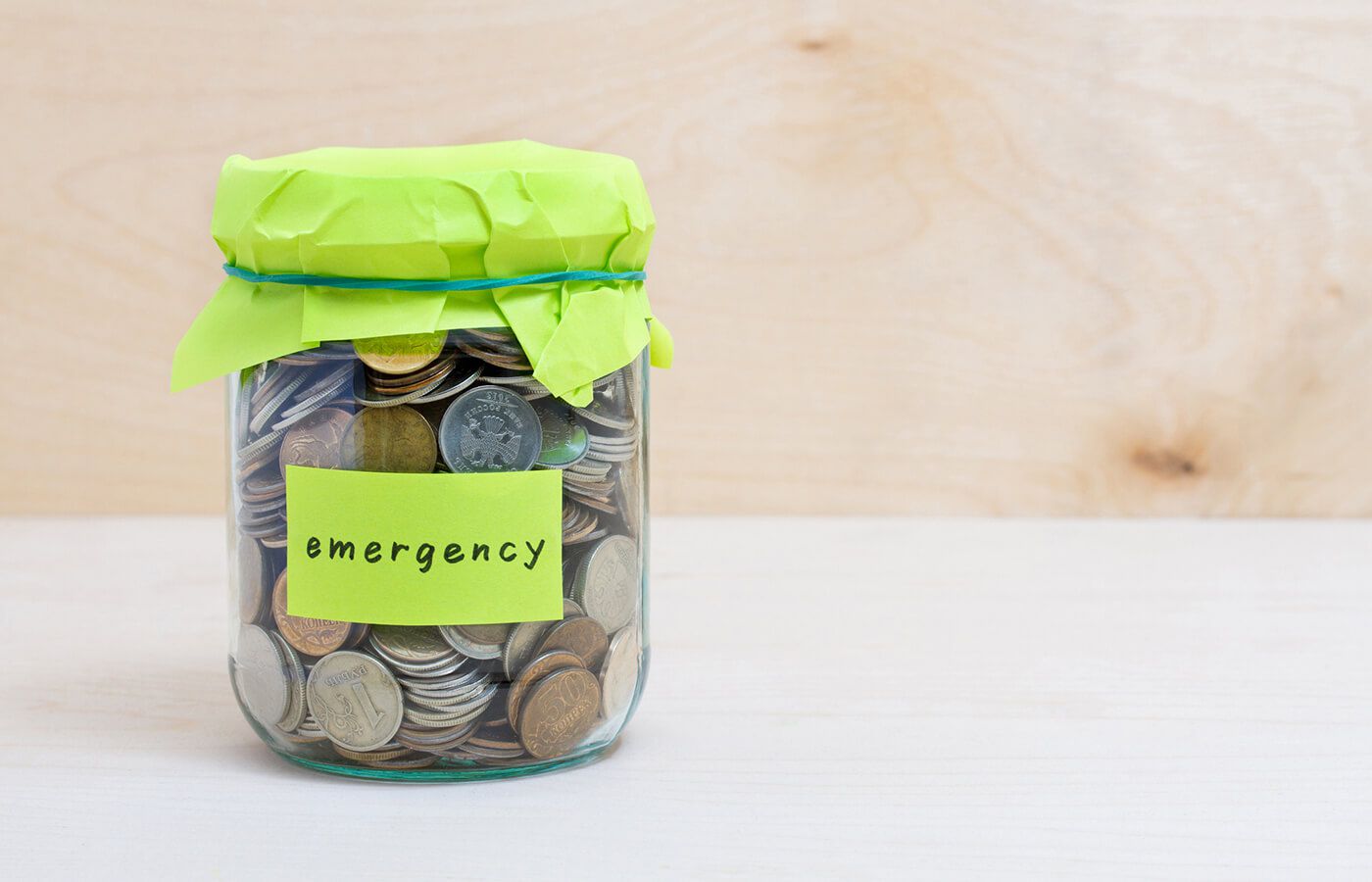Home>Finance>The Importance of Emergency Funds and How to Build Yours


Finance
The Importance of Emergency Funds and How to Build Yours
Published: June 27, 2024
Discover the importance of emergency funds and practical steps to build yours effectively. Secure your financial future today!
(Many of the links in this article redirect to a specific reviewed product. Your purchase of these products through affiliate links helps to generate commission for LiveWell, at no extra cost. Learn more)
Table of Contents
Financial stability is a common goal many Americans share, and an emergency fund is an indispensable tool to achieve that goal. However, a survey found that more than two in five Americans expressed that they lack a sense of financial stability.
Often overlooked or sidelined in pursuing other financial goals, an emergency fund acts as a safety net, providing a buffer against unexpected expenses and financial setbacks. Understanding the significance of emergency funds and how to build one tailored to your needs can be transformative for your financial well-being.
Protection Against Unforeseen Expenses
Emergencies come in all shapes and sizes, from medical crises to unexpected home repairs. Without an emergency fund, such situations can quickly escalate into financial disasters. Individuals may struggle to cover medical bills without savings set aside specifically for emergencies, potentially resorting to borrowing or draining other savings for long-term goals. This creates immediate financial strain and long-lasting consequences, such as accumulating medical debt or delaying necessary treatments.
An emergency fund provides the necessary funds to address emergencies without derailing one’s financial plan. With this cushion in place, individuals can confidently navigate unexpected expenses, knowing they have the resources to handle whatever comes their way. Whether it’s a broken-down car, a sudden home repair, or an unexpected trip to the emergency room, having cash reserves readily available can alleviate stress and minimize the financial impact of emergencies.
Preservation of Financial Goals
Financial planning is all about balancing short-term needs with long-term objectives. Without an emergency fund, individuals may be forced to sacrifice their long-term goals to address immediate financial needs. For example, consider a couple saving for a down payment on a home. Without an emergency fund, they may be tempted to dip into their savings whenever an unexpected expense arises, delaying their homeownership plans indefinitely.
Individuals can protect their long-term financial goals from short-term disruptions by maintaining a separate emergency fund. Rather than depleting savings earmarked for specific purposes, they can tap into their emergency fund to address unforeseen expenses while staying on track with their broader financial objectives. This ensures that their progress towards goals like homeownership, retirement, or education remains steady, regardless of any bumps in the road.
Freedom from Debt Trap
High-interest debt can quickly spiral out of control, mainly when used to cover unexpected expenses. Without an emergency fund, individuals may have no choice but to rely on credit cards or personal loans to address emergencies, leading to a cycle of debt that can be difficult to break. For example, some people might find themselves in a situation where they experience sudden job loss without any savings to fall back on. In such a situation, they may be forced to rely on credit cards to cover basic living expenses, accruing high-interest debt.
An emergency fund allows individuals to cover unexpected expenses with cash reserves, avoiding the need for costly borrowing. This saves money on interest payments and helps break the debt cycle by addressing emergencies without resorting to credit. With a solid emergency fund, individuals can maintain financial stability and avoid the stress and strain often accompanying indebtedness.
Flexibility and Adaptability
Life is unpredictable, and financial plans must be flexible enough to accommodate unexpected twists and turns. An emergency fund provides the flexibility to adapt to changing circumstances without derailing one’s overall financial strategy.
For instance, a sudden job loss due to industry downturn or company restructuring is a possibility and can already affect mental health. Without savings set aside for emergencies, individuals may find themselves in a precarious financial situation, struggling to cover basic living expenses while searching for new employment.
An emergency fund provides a buffer against such scenarios, allowing individuals to weather periods of unemployment or economic uncertainty more easily. With cash reserves readily available, they can focus on finding new opportunities or exploring alternative career paths without the added pressure of financial instability.
Tailoring Your Emergency Fund
While financial experts often recommend having three to six months’ worth of living expenses saved in an emergency fund, the ideal amount may vary depending on individual circumstances. Factors such as employment stability, income level, and family size should all be considered when determining the appropriate size of your emergency fund. For example, individuals with stable employment in a recession-resistant industry may opt for a smaller emergency fund, while those with irregular income or volatile job prospects may choose to save more.
Consider the nature of potential emergencies and adjust your savings accordingly. For example, individuals with chronic health conditions may want to set aside additional funds to cover medical expenses, while homeowners may need to account for potential repairs or maintenance costs.
When your emergency fund may not be sufficient to cover unexpected expenses, it’s essential to explore alternative options responsibly. Online loans ease the burden of an unexpected expense between paychecks. But before considering online loans, take the time to research and learn about online options available to you. Compare interest rates, terms, and repayment plans from reputable online lenders. Understanding the cost and implications of borrowing will help you make informed decisions.
While online loans can offer convenience and accessibility, they should be used judiciously and as a last resort when other options, such as tapping into your emergency fund or seeking assistance from family and friends, are unavailable. Be sure to borrow only what you need and can afford to repay, taking into account any associated fees and interest charges.
Peace of Mind and Reduced Stress
Financial stress can significantly affect mental and physical well-being, impacting everything from sleep patterns to overall quality of life. Constantly worrying about how to cover unexpected expenses can lead to anxiety, depression, and even physical health problems. An emergency fund is a buffer against such stressors, providing security and peace of mind.
Knowing that you have a financial safety net to fall back on can alleviate anxiety and empower you to face life’s challenges with resilience. Instead of dwelling on worst-case scenarios, individuals with emergency funds can focus on proactive financial planning and personal growth. This peace of mind is invaluable, allowing individuals to navigate life’s uncertainties with confidence and optimism.














